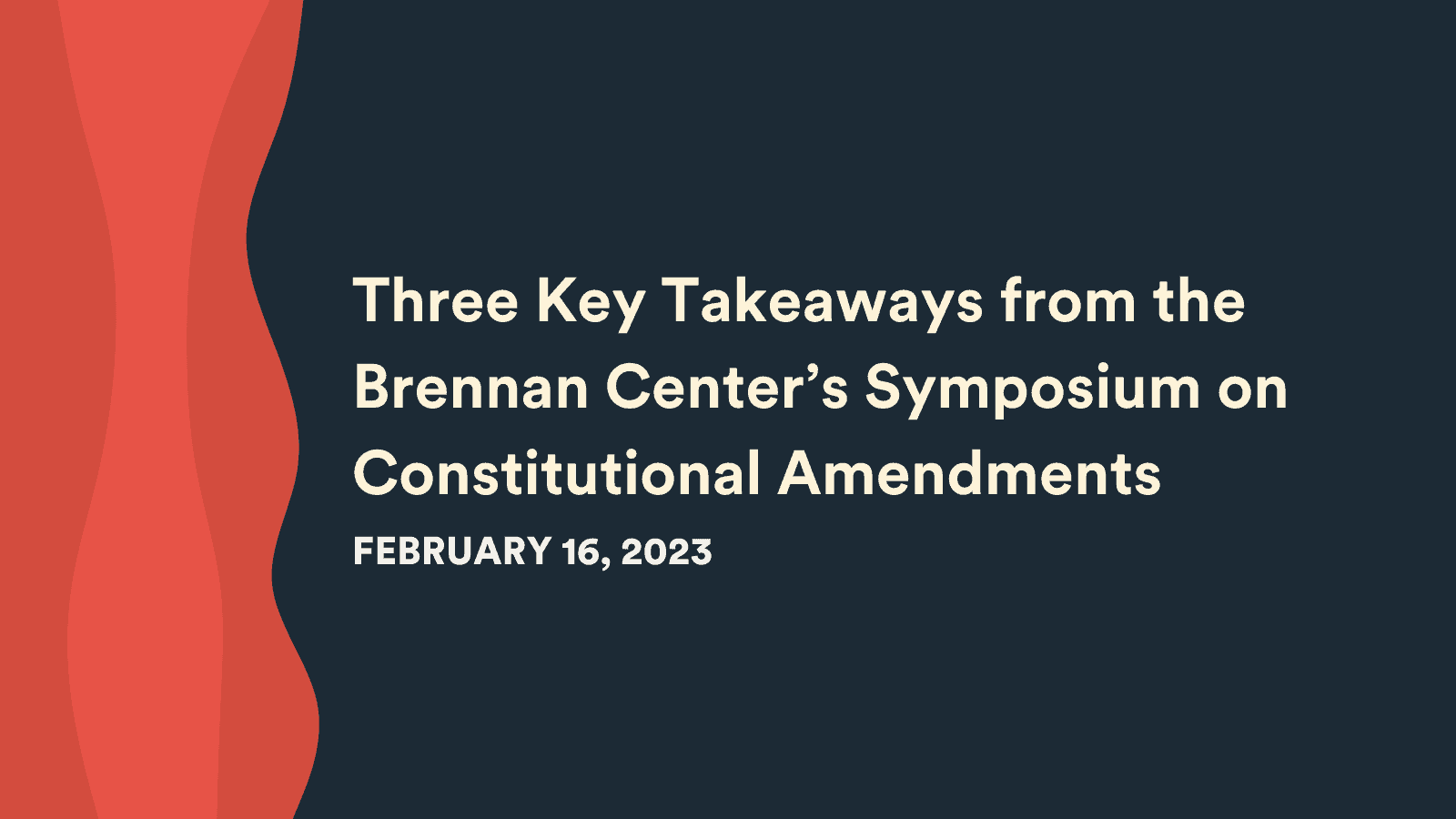Last Thursday, American Promise was honored to take part in an academic symposium organized by the Brennan Center entitled Constitutional Amendments: Time to Rethink?
Why this is so important:
- American Promise was invited to take the stage with leading scholars – showing that the work we are doing to pass a Constitutional amendment across the country is being taken seriously
- Our participation in this event showed once again that hearing true stories about Americans working together across political divides can flip the narrative that we’re “too divided” to make signficicant change
- Scholars are realizing we’re in a moment that involves Constitutional politics, and tapped American Promise to be the voice of what’s happening across the country
We are at a tipping point where legal scholars – known to be skeptical of the chances of amending the Constitution – are beginning to realize that this may be the time for a Constitutional amendment.
The event was hosted by NYU Law School and it convened legal scholars and practitioners who offered perspectives on whether America might be on the cusp of another amending moment. American Promise’s president, Jeff Clements, was one of four speakers on “Recovering Our Constitutional Imagination.” It was an incredibly inspiring day, and here are a few of our top takeaways:
New York Times Reporter Jesse Wegman said “I feel more optimistic than I’ve ever felt about Constitutional reform.”
@nytimes reporter Jesse Wegman: “After hearing from @ClementsJeff and @JulieCSuk, I feel more optimistic than I’ve ever felt about constitutional reform.”
— American Promise (@usapromise) February 16, 2023
The conventional wisdom in the legal academy has been that the Constitution is “effectively unamendable.” But last week’s symposium saw speakers agree that action is required.
Jeff Clements brought American Promise’s on-the-ground experience into the academic discussion by describing how citizens are finding common ground on the issue of money-in-politics. He noted that it’s easier to believe in the possibility of amending the Constitution when you’re actually talking and working with everyday Americans – from all across the political spectrum – on this fundamental issue of self-government. As Jeff put it, “I’m here to give you a report from the field. The Constitution is amendable – and we’re doing it.”
After Jeff’s remarks, his co-panelist and NYTimes reporter Jesse Wegman noted, “I feel more optimistic than I’ve ever felt about Constitutional reform.”
And Caroline Fredrickson issued a stirring call to action to “go and actually work on the Constitutional change you want to see!”
The framers wanted Americans to amend our Constitution.
As Professor John Vile explained, when the framers drafted Article V (the part of the Constitution that sets forth the amending process), “they did not intend for it to be an ‘iron cage.’” They knew that circumstances would change, and they also knew that they weren’t perfect. So they included Article V so that our Constitution could be updated and refined over time.
Interesting historical tidbit: Thomas Jefferson believed we should revisit the Constitution every 19 years to ensure that our laws would reflect the will of successive generations. As Jefferson wrote to James Madison, “The earth belongs always to the living generation.”
Amendments typically come during certain “moments.”
Panelist Professor Wilfred Codrington III reminded the group that most amendments have occurred when social and political conditions like the following combined to create amending moments:
- The Supreme Court makes a decision that the American people deeply oppose.
- The country is experiencing stark political polarization.
- There is agitation in the States for Constitutional change.
- Americans have a sense of political and/or economic insecurity.
- Demographic and social changes are testing the current Constitutional framework.
If this list rings a bell for today’s sociopolitical climate in America, you’re not alone.
Now’s the time to get in the game.
Last week’s symposium marked an important shift in the rhetoric around amending the Constitution. Everyone agreed that it is healthy to have a “culture of amendment” – a greater willingness to change our fundamental charter in order to improve our national life. As Elizabeth Wydra remarked, “this Constitution still belongs to us” and we owe it to ourselves and our forebears to continue to make it a “more perfect Union.”





